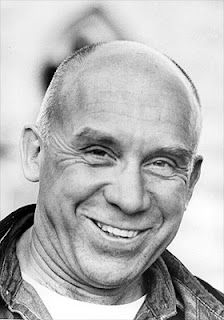 Paul Dekar, a recently retired professor, expresses his debt to Thomas Merton, when reflecting on his thirty-two years as a teacher:
Paul Dekar, a recently retired professor, expresses his debt to Thomas Merton, when reflecting on his thirty-two years as a teacher:
“In the 1970s, I rediscovered Merton. Recalling his experience at Columbia University, Merton wrote of his theology of education in an essay entitled ‘Learning to Live.’ The function of a university is first of all to help students to discover themselves, to recognize themselves, to move beyond one’s superficial selves, to claim selfhood in freedom.” Merton wrote:
“The purpose of education is to show a person how to define himself authentically and spontaneously in relation to his world – not to impose a prefabricated definition of the world, still less an arbitrary definition of the individual himself. The world is made up of people who are fully alive in it: that is, people who can be themselves in it and can enter into a living and fruitful relationship with each other in it. The world is, therefore, more real in proportion as people are able to be more fully and more humanly alive; that is to say, better able to make a lucid and conscious use of their freedom.”
Thomas Merton, Love and Living, ed. Naomi Burton Stone and Patrick Hart (New York: Farrar, Straus and Giroux, 1979) 3.
To read more about Merton’s ideas on education, how he put them into practice and two features of Merton’s pedagogy that have informed the teaching of Paul Dekar, follow this link:
Paul Dekar, ‘Teaching Evangelism in a Community of Learning’, Journal of the Academy for Evangelism in Theological Education, Volume Twenty-Two, 2006-2007, 64-84.
Paul R. Dekar was formerly Professor of Evangelism and Missions at Memphis Theological Seminary. A graduate of the University of California (Berkeley), Colgate Rochester Divinity School and the University of Chicago, he has also taught at Central Michigan University, McMaster University, Acadia University and Whitley College, the University of Melbourne.
Dr. Geoff Pound
Image: Thomas Merton; Paul Dekar.
